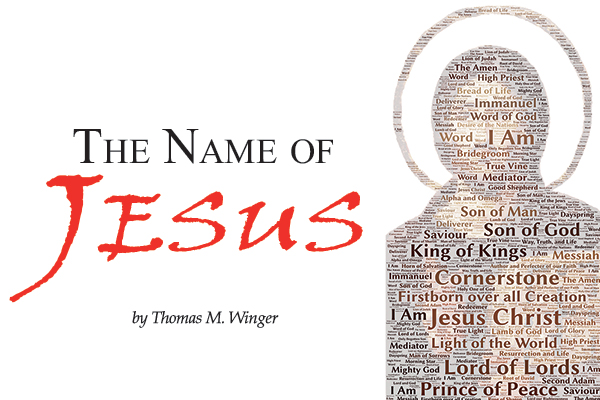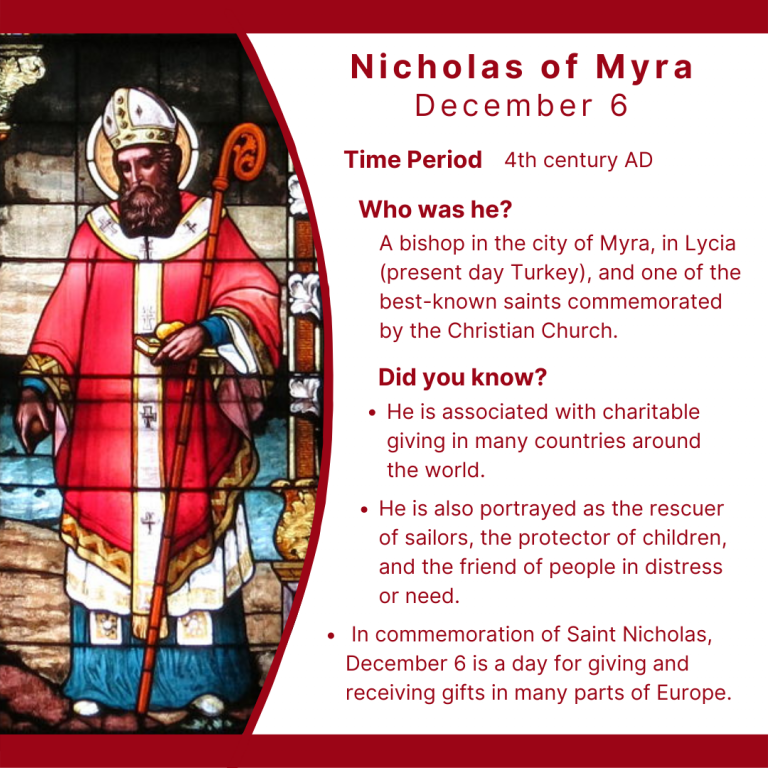The Name of Jesus

by Thomas M. Winger
The story is told of a wrestling match in the ancient Olympics between a wrestler from Ephesus and one from nearby Miletus. The little Ephesian was absolutely unbeatable, and so his Milesian opponent cried foul. On close examination the judges discovered that the Ephesian had six magic words written on a band around his ankle. When these “Ephesian letters” were removed, the Milesian threw him to the ground 30 times in a row! What was the power of these words? Acts 19 tells us that Ephesus was home to the great Temple of Artemis, thought to be the most powerful of gods. Magicians used her divine name and the “Ephesian letters” to control demons and perform miracles.
But when Paul came to Ephesus preaching the name of Jesus, Artemis and her demons met their match. In Jesus’ name he healed the sick and cast out demons. The magicians gave up their magic books and the idol makers went out of business. The name of Jesus triumphed because, as Paul would later write to the Ephesians, God the Father had raised Jesus “far above all rule and authority and power and dominion, above every name that is named, not only in this age but also in the one to come” (Ephesians 1:21). By raising Jesus from the dead on Easter Sunday and seating Him again at His right hand in heaven after forty days, the Father gave the greatest glory and power to the name of Jesus. His name had more power than the name of any “gods.”
This ancient way of thinking seems very foreign to us today. We have scientific explanations for illnesses and accidents; we look to medicine for healing and to technology for protection. But as our Western society seems to be on the brink of collapse, as terrorism and war come closer to our doorsteps, as false religions seem more popular than the Christian faith, we must realise that there is more going on in the world than we can see with our eyes. The Bible teaches that behind it all there is a great spiritual battle going on (Ephesians 6:12), even in our modern world. The ancient Ephesians turned to magic and idolatry because they were deathly afraid. The message of the Christian Gospel calmed their fear by giving them a name more powerful than Artemis’. The good news for us is that we, too, have been given this greatest spiritual weapon, “the name that is above every name, so that at the name of Jesus every knee should bow, in heaven and on earth and under the earth” (Philippians 2:9-10).
The good news for us is that we, too, have been given this greatest spiritual weapon, “the name that is above every name, so that at the name of Jesus every knee should bow, in heaven and on earth and under the earth.”
When the angel of the Lord appeared to Joseph to announce that his fiancée Mary was pregnant by the Holy Spirit, the angel insisted that they should call the Child’s name “Jesus” (Matthew 1:21). Today we choose names for our children to remind us of dear family members or simply because we like the sound. But ancient people believed that the name expressed who the child truly was. And they believed that a name could have power. The power of Jesus’ name was found in its meaning: “for He will save His people from their sins” (Matthew 1:21). “Sins” are the failures and rebellious acts that separate us from God. “Sins” are thoughts, words, and deeds that come from the devil and his demonic troops. “Sins” represent our defeat in the spiritual battle. But Jesus enters into the battle to “save” or rescue us by defeating our spiritual enemies. Christmas was His entry into the battle and Easter was His great victory. By giving us His name, He gives that victory to us.
The angel tells Joseph that this child will have another name: “Immanuel (which means, God with us)” (Matthew 1:23). If “Jesus” tells us what He does (He “saves”), “Immanuel” tells us how He can do it. Jesus can save because He is the Most High God who has come down into human flesh. These names aren’t just labels to help us distinguish one person from another. These names do what they say. Jesus delivers us in our spiritual battles because He carries the power of God.
If Jesus simply took His name and power to heaven at His ascension, it might do us no good at all. But before He ascended, He delivered His name to us through His holy apostles. He sent them forth to preach repentance for the forgiveness of sins in His name (Luke 24:47). These preachers wielded His name like a sword against our spiritual enemies (see Luke 10:17). And Jesus gave these apostles the authority to put His name on people throughout the world with the water of Holy Baptism “in the name of the Father and of the Son and of the Holy Spirit” (Matthew 28:19). So, just as the Father exalted His eternal Son by giving Jesus His divine name, God lifts us up by putting His name on us in Baptism. We are now part of His family and are protected by His name. His name gives us the forgiveness of our sins and the power of the Holy Spirit (Acts 2:38). By believing in Jesus’ name, we have life (John 20:31).
This is only the beginning of the great treasures that come to us when we receive Jesus’ name in Baptism. Jesus tells us that His name opens up the Father’s heart to us. Whatever we wish to ask of the Father, He will give it to us because of Jesus’ name (John 16:23). In other words, the Father treats us as He would treat His own Son. Prayer is only possible because we have Jesus’ name. We end our prayers in Jesus’ name not as if it were a magic formula but because Jesus has promised to carry our prayers to the Father. His name opens the door to heaven and allows us to stand before God’s throne (Ephesians 2:18; Romans 5:2).
We end our prayers in Jesus’ name not as if it were a magic formula but because Jesus has promised to carry our prayers to the Father. His name opens the door to heaven and allows us to stand before God’s throne.
This is why many Christians begin their public liturgy with the Holy Triune name that was put on us in Baptism. When we say, “in the name of the Father and of the Son and of the Holy Spirit,” we are holding up God’s own promises before Him. We are standing at the door of heaven and asking to enter in because we carry His family name. And God is so pleased to hear it! He gave us His name in Jesus for this very reason. He wants us to worship Him with this name. In the Old Testament, worship, preaching, and sacrifices are often described as “calling on the name of the Lord [Yahweh]” (e.g. Genesis 12:8). God gave Moses His name not so that His people could magically manipulate Him (like the Ephesian wrestler!), but so that they could call upon Him for help in their great need (Exodus 3:13-17).
We Christians gather in the divine service for the same reason: to call on the name of the Lord, to ask for Jesus to save us from our sins, to be in the presence of “God with us.” That’s how Paul describes the Christian church in Corinth, as “those sanctified [made holy] in Christ Jesus, called to be saints together with all those who in every place call upon the name of our Lord Jesus Christ” (1 Corinthians 1:2). In the divine service we do everything in Jesus’ name. His name is the power behind preaching, absolution (forgiveness), Baptism, and the Lord’s Supper. These simple actions can do great things, defeat our spiritual enemies and give us divine life, because Jesus’ name has power. In Jesus’ name we can respond to these gifts by giving thanks and praise to the Father (Ephesians 5:20).
But as we think about Jesus’ name at Christmas time, we are reminded that God didn’t simply equip us like soldiers with an ultimate spiritual weapon. He didn’t just give us His name as a word to speak like a magic spell. No, God came as a person in the man Jesus. Where His name is, there God is. So Jesus could later say, “where two or three are gathered in My name, there am I among them” (Matthew 18:20). When we Christians gather for worship, we don’t just talk about Jesus, but He is there in our midst. He speaks to us, He forgives us, He feeds us, and He carries our cares and worries to our Father’s throne in person. We’re not alone; God is with us. Immanuel.
———————
Rev. Dr. Thomas M. Winger is President of Concordia Lutheran Theological Seminary in St. Catharines, Ontario. This article is being co-published in Pyhäkön Lamppu (The Temple’s Lamp), the news magazine of the Evangelical Lutheran Mission Diocese of Finland to express the fellowship declared at Lutheran Church–Canada’s synodical convention in October.



